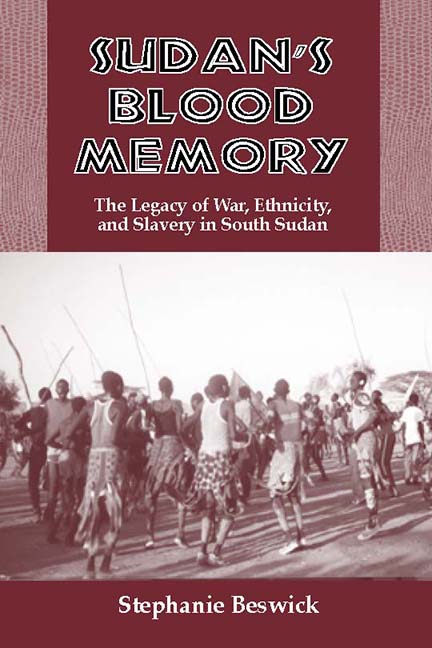Book contents
- Frontmatter
- Dedication
- Contents
- Maps
- Preface
- Acknowledgments
- A Note on Orthography and Languages
- A Note on Sources
- Map
- 1 Introduction
- 2 Geography and Brief History of Sudan
- 3 The Changing Nilotic Frontier
- The Ethno-Historical Formation of Southern Sudan
- The Ascendancy of the Dinka in Southern Sudan
- 9 Grain, Cattle, and Economic Power
- 10 Totemic Religion
- 11 Human Sacrifice, Virgins, and River Spirits
- 12 Priests, Politics, and Land
- 13 Ethnic Expansion by Marriage
- 14 Sovereign Nations within the Dinka
- Foreign Intrusion and Its Consequences
- Notes
- Glossary
- Bibliography
- Index
11 - Human Sacrifice, Virgins, and River Spirits
from The Ascendancy of the Dinka in Southern Sudan
Published online by Cambridge University Press: 23 July 2019
- Frontmatter
- Dedication
- Contents
- Maps
- Preface
- Acknowledgments
- A Note on Orthography and Languages
- A Note on Sources
- Map
- 1 Introduction
- 2 Geography and Brief History of Sudan
- 3 The Changing Nilotic Frontier
- The Ethno-Historical Formation of Southern Sudan
- The Ascendancy of the Dinka in Southern Sudan
- 9 Grain, Cattle, and Economic Power
- 10 Totemic Religion
- 11 Human Sacrifice, Virgins, and River Spirits
- 12 Priests, Politics, and Land
- 13 Ethnic Expansion by Marriage
- 14 Sovereign Nations within the Dinka
- Foreign Intrusion and Its Consequences
- Notes
- Glossary
- Bibliography
- Index
Summary
“For the Dinka there is a pride for those who offer their daughter…. Only prominent priests can offer women for sacrifice.”
Bona Acuil, Rek DinkaAlong with totems, the Nilotic Dinka relied heavily on other aspects of their religion as they migrated south into uncertain lands, particularly the practice of human sacrifice. There are a number of theories concerning religion and human sacrifice in Africa today. C. G. Seligman, A. J. Arkell, and Timothy Kendall point to the practice of human sacrifice among the Nilotes of Southern Sudan and suggest that these modern-day societies represent, in the ethnographic present, socioreligious cultures of the ancient Nile kingdoms of central Sudan. Even Nubian Sudanese archaeologist Ali Osman told me in 1998 in Boston, “as far as I am concerned the Dinka are all Meroites,” suggesting a close association with the ancient Nile kingdom of Meroe. Further, other scholars hold that there is an essential similarity in the religious institutions of many sub-Saharan monarchies and that these institutions diffused westwards and southwards from Egypt, the eastern Sudan, and adjacent areas. Jan Vansina disagrees with many of the arguments above, however, and suggests that religions do not recreate themselves as blue prints when cultures move away from a religious center to a periphery. Rather, over time they absorb other societies and religions. In this chapter I will explore the validity of the arguments above to discover whether some aspects of religious practices of the ancient central Sudanese Nile Kingdoms appear to have been transported culturally by the Dinka in their migrations from central to Southern Sudan.
Religious Practices of Ancient Nile Kingdoms and Western Nilotes
Among the causes of human sacrifice in world history have been population control, meat hunger, state terrorism, and religious rites. Marvin Harris suggests that human sacrifice was a practice closely connected to early state formation as new rulers consolidated control over their emerging kingdoms.
King-Killing
Both ancient Egypt and the southern Empire of Meroe (in what is now Sudan) observed the custom of king-killing wherein divine kings or godmen were ritually killed when their bodies showed premature signs of weakness or old age. Similarly, further south along the Blue Nile, king-killing was one special instance of a general feature of pre-Islamic ideology in the medieval sultanate of Sinnar.
- Type
- Chapter
- Information
- Sudan's Blood Memory , pp. 108 - 123Publisher: Boydell & BrewerPrint publication year: 2004



